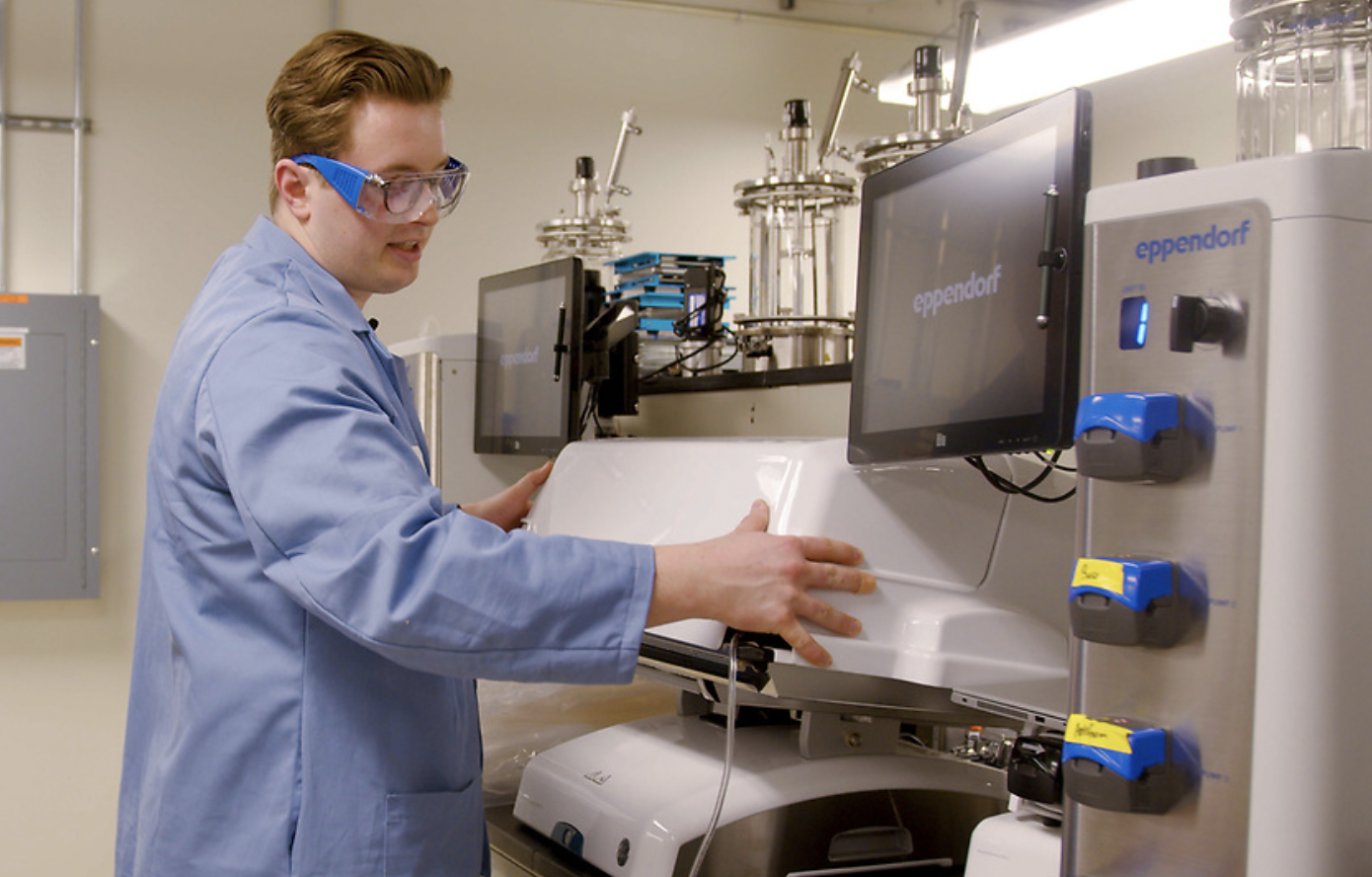
Each time Ryan Hobson ’22 was stuck on what to do next about his career path, a door opened.
And each time, that door led into the Stack Family Center for Biopharmaceutical Education and Training (CBET). Walking through it twice has landed Hobson a job that he is thriving in.
Hobson entered ACPHS in Fall 2018 in the microbiology program. He’d heard about the College’s sound reputation, small class sizes and opportunities for research. He knew he wanted to help people, to work in the medical field, maybe in a hospital. He planned perhaps to enter graduate school to become a physician assistant.
In pursuing his studies and volunteer work, Hobson learned something critically important for someone intending to work in the medical field in an acute care setting.
“I realized I was afraid of blood,” he said with a broad smile.
As happens when someone is pursuing the wrong thing, Hobson recognized he was not checking off all the boxes to move forward with his plan. Meanwhile, he was learning about his love for working in the laboratory.
And then he heard about the biopharmaceutical field, which he knew nothing about. A talk by Dr. Kamal Rashid, who had joined ACPHS in Fall 2019 as the founding director of CBET, created a new possibility for Hobson – a path to industry, rather than medicine or pursuit of a Ph.D.
“I remember being super interested in this whole idea of taking a cell and imagining a cell as a mini factory,” Hobson said, still excited years later as he spoke about Rashid’s talk. “And if you think of the cell as a mini factory, and manipulate the environment, give it certain conditions, feed it a certain way, you can then produce your product.”
The door had opened a crack; Hobson thought he had found something to pursue. And then the COVID-19 pandemic happened. Hobson got caught up in adapting to the changes wrought by social distancing and remote learning, and he forgot about CBET.
But as the pandemic continued and Hobson entered his third year without a firm plan for his future, his academic advisor urged him to consider biopharmaceutical training. Hobson pushed the door open, and took classes at CBET for two years.
His classes served him well after graduation when he completed a five-month internship at Curia, an Albany-based drug development company. Those CBET classes – in downstream processing, microbial fermentation, biopharmaceutical microbiology and others – set him up perfectly, he said. He also learned about engineering – manipulating those parts of the process that are not going to plan.
Hobson especially enjoyed the work in fermentation. But Curia restructured, sending that part of the business to a facility in Spain. Hobson started asking around about openings at Curia and elsewhere, unsure what was next.
And in mining his network, a door opened again. Back at CBET. Just as when recalling Dr. Rashid’s talk, Hobson gets a little excited describing his work in fermentation, part of the upstream processing for a client contract.
“We’re growing cells that produce a virus that when purified is then used to make vaccines,” Hobson said. “It’s something that’s very exciting and new, we’re trying to actually produce the virus in cells.”
He’s doing work he loves in the lab and fulfilling his goal of helping people under the guidance of current CBET director Michelle Lewis.
His advice to others is to pay attention to the opportunities that present themselves.
“Things opened up – those pathways weren’t there when I started,” he said. “I was able to take those paths and find something I like to do and really enjoy every single day.”

